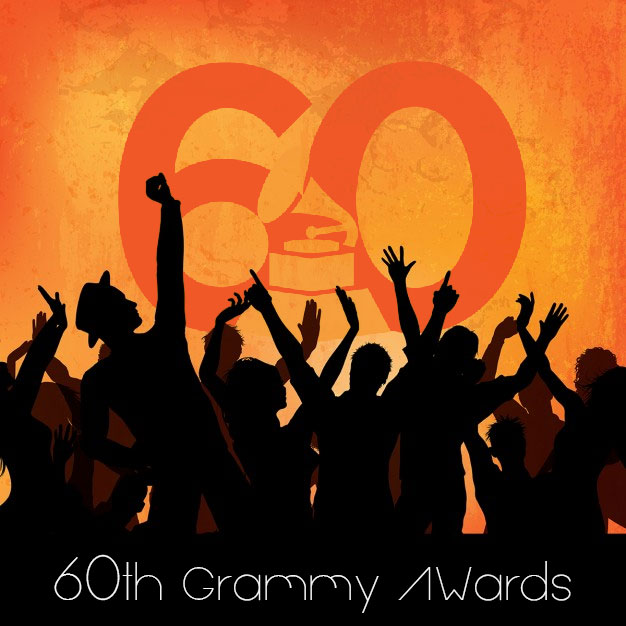The Grammys: A melting pot of nominees
The Grammys insists on being an immanent force in diversifying Hollywood with its inclusive list of nominees, incorporating black artists this year at an unprecedented rate.
A diverse nominations list includes notable artists like Kendrick Lamar, Jay-Z, and SZA, who astonishingly reign supreme at the 60th Grammy Awards. Individuals who willingly assimilated mainstream media with the essence of black culture prevail in this year’s nominations, a sight unfathomable beforehand.
According to People, “This year’s seven most-nominated artists are all people of color — and for the first time since 1999, no white man was nominated for the Album of the Year category.”
The top nominees of the award ceremony include Jay-Z with 8 noms, Kendrick Lamar with 7, Bruno Mars with 6, Childish Gambino with 5, Khalid with 5, No I.D. with 5, and SZA with 5. Several of these artists are comprised within the two most prestigious awards of the night, Record of the Year and Album of the Year. Record of the Year nominees include Redbone (Childish Gambino), Despacito (Luis Fonsi & Daddy Yankee Featuring Justin Bieber), The Story of O.J. (Jay-Z), HUMBLE (Kendrick Lamar), and 24K Magic (Bruno Mars). Album Of The Year nominees include “Awaken, My Love!” (Childish Gambino), 4:44 (Jay-Z), DAMN. (Kendrick Lamar), Melodrama (Lorde), and 24K Magic (Bruno Mars).
The prevalent notion of diversifying the entertainment industry likely revolutionized the Grammy’s approach on this year’s nominees. A #OscarsSoWhite social movement could have fortified the urgency towards minority appreciation in Hollywood.
In late 2015, the Academy Awards, also known as The Oscars, accentuated their inadequacy to depict actors of color in film, with a “very white” nominations list. According to USA Today, “for the second year in a row, all 20 actors nominated in the lead and supporting acting categories were white (which, before 2015, hadn’t happened since 1998).” Movies containing substantial African American leads, like ‘Creed’ and ‘Straight Outta Compton’, received one miniscule Oscar nomination, completely diminishing the presence of pivotal African American embodiment.
“In the Academy Awards’ 88-year history, only 14 black actors have won acting Oscars — the first was Hattie McDaniel for Gone With the Wind in 1940, and the last was Lupita Nyong’o for 12 Years a Slave in 2014. The winners’ pool is even shallower for other minorities, “ according to USA Today.
For years, Hollywood pursues the boresome ideal that white artistry exceeds that of minority entertainment. The Grammy’s promptly quells this perception of the entertainment business and commends black talent, distinguishing Hip-Hop/R&B as a genre that merits attention.
Converting to digital voting and a transformation of the Grammy online platform, according to The Verge, is most likely what contributed to the upturn in racial diversity with this year’s nominees. “Grammy nominees are decided by voting members: music industry professionals who have creative or technical credits on at least six commercial tracks on a physical music release, or 12 on a digital album. They’re not just label bigwigs. They’re songwriters, touring artists, and engineers. And, there’s only about 13,000 of them.”
The dilemma of incompetent racial and ethnic diversity within the entertainment industry prevails to encompass the industry entirely. Though, if not for the immense strides and exquisite talents displayed by minorities, we would be deprived of these various outlets that exhibit the excellence of black culture. Revisions must be promptly made to normalize the presence of numerous African American nominations amongst award ceremonies that epitomize diversity. Minority artists, particularly African Americans, should not be finessed of awards, simply due to the color of their skin. Trustingly, the Grammy
s will endure in a positive direction and continue to applaud the success of proficient artists despite skin color. The opportunity to be endowed with accolades that symbolize both hard work and diligence should purely be based on talent, rather than race.







